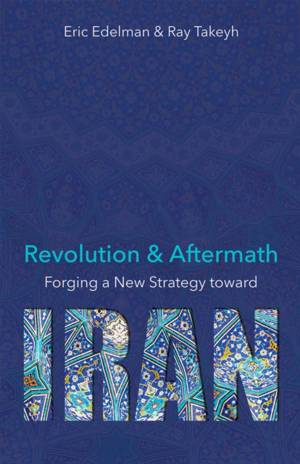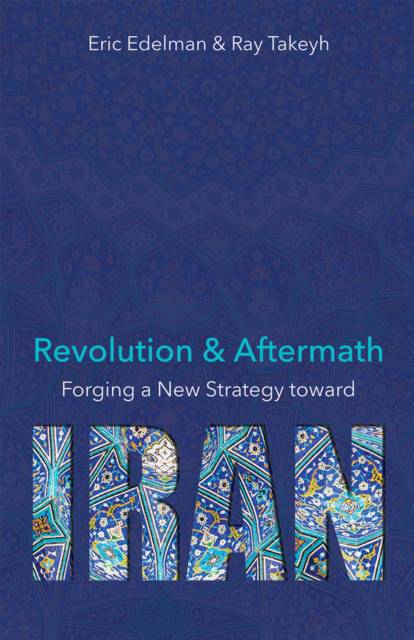
- Afhalen na 1 uur in een winkel met voorraad
- Gratis thuislevering in België vanaf € 30
- Ruim aanbod met 7 miljoen producten
- Afhalen na 1 uur in een winkel met voorraad
- Gratis thuislevering in België vanaf € 30
- Ruim aanbod met 7 miljoen producten
Zoeken
Revolution and Aftermath
Forging a New Strategy Toward Iran Volume 689
Eric Edelman, Ray Takeyh
Hardcover | Engels
€ 27,95
+ 55 punten
Omschrijving
In Revolution and Aftermath: Forging a New Strategy toward Iran, Eric Edelman and Ray Takeyh examine one of the most underappreciated forces that has shaped modern US foreign policy: American-Iranian relations. They argue that America's flawed reading of Iran's domestic politics has hamstrung decades of US diplomacy, resulting in humiliations and setbacks ranging from the 1979-81 hostage crisis to Barack Obama's concession-laden nuclear weapons deal. What presidents and diplomats have repeatedly failed to grasp, they write, is that "the Islamic Republic is a revolutionary state whose entire identity is invested in its hostility toward the West." To illuminate a path forward for American-Iranian relations, the authors address some of the most persistent myths about Iran, its ruling elite, and its people. Finally, they highlight lessons leaders can learn from America's many missteps since the 1979 Islamic Revolution.
Specificaties
Betrokkenen
- Auteur(s):
- Uitgeverij:
Inhoud
- Aantal bladzijden:
- 168
- Taal:
- Engels
Eigenschappen
- Productcode (EAN):
- 9780817921545
- Verschijningsdatum:
- 1/07/2018
- Uitvoering:
- Hardcover
- Formaat:
- Genaaid
- Afmetingen:
- 145 mm x 218 mm
- Gewicht:
- 385 g

Alleen bij Standaard Boekhandel
+ 55 punten op je klantenkaart van Standaard Boekhandel
Beoordelingen
We publiceren alleen reviews die voldoen aan de voorwaarden voor reviews. Bekijk onze voorwaarden voor reviews.











